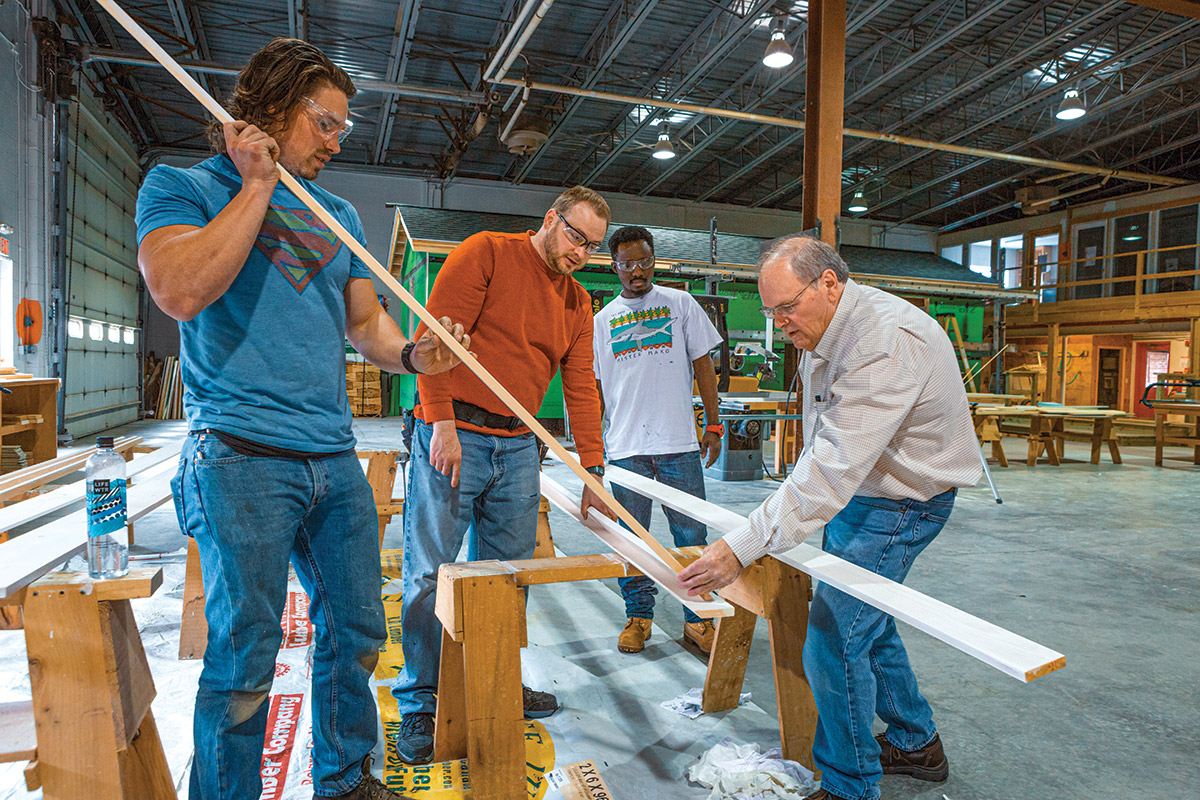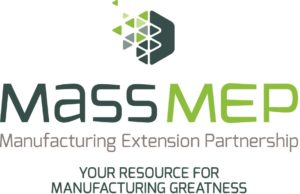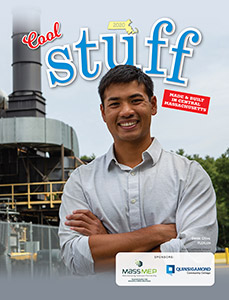
Students enrolled in the Construction Institute at Southern Maine Community College get short-term training in five core construction skills to get certificates of readiness in those areas, while earning credits toward a degree.
Dan Belyea is the executive director of workforce training at the Maine Community College System. He serves as a member of the senior management team and provides state-wide leadership on workforce training. To develop training programs, MCCS works with a range of industries: manufacturing, construction and trades, health care, IT and hospitality. It has trained hundreds of people for Bath Iron Works jobs. At Northern Maine Community College, it sponsored a licensed practical nurse program with a long term care facility to help meet the area’s needs. It is working with Hospitality Maine to help address the shortages in line cooks and hospitality services positions with course curriculum that aligns with their apprenticeship program. The Manufacturing Extension Partnership works with MCCS to deliver Lean manufacturing and Kaizen training. It is also working on leadership training.
STUFF: How do Maine’s community colleges identify the need for certain areas of workforce training?
DAN BELYEA: It’s all about partnerships. We are deeply engaged with employers across the state. We listen to their needs and we’re plugged into the latest news on workforce issues — from employers, state leaders and industry organizations. We hear directly about those shortages — in health care, construction and trades, IT, hospitality, and other key industries — and we act on it. Those employers tell us they have good paying and high demand jobs, but they can’t find qualified workers. That’s where we can step in and develop short-term tailored job training that guarantees successful graduates will be ready to get to work.
STUFF: How do Maine’s community colleges develop partnerships with employers?
BELYEA: Once we’ve identified the need, we pair the employer up with a workforce development specialist at a nearby community college. They work together to make sure the proposed training program is just what they need. A lot of employers want trainees to get industry recognized certifications for, say, welding or medical assisting or computer technology. When possible, there’s academic credit available. One of our projects with Bath Iron Works even provides trainees with housing during the three-week program so they can focus on the training. It is an innovative approach we’re exploring with other employers.
STUFF: What kind of job training is available? Do trainees get hands-on training?
BELYEA: Absolutely. Most employers want the trainees working and practicing on the same equipment they’re going to use on the job. So, when possible, employers donate equipment, such as Central Maine Power donating poles and harnesses for the line worker program. We also can do training at the business site. A program we are going to run at Paradigm Windows offers training for how to properly apply sealants to windows. We provide training on window assembly, hardware installation, technical math and measurements, the safe use of hand tools and Lean manufacturing principles.
STUFF: Do you only work with individual employers, or do you work with industry associations as well?
BELYEA: We do both. One program we launched this spring with local boatyard owners is a great example of how the community colleges are nimble partners and can troubleshoot a workforce challenge. The Marine Trades Association came to us and said boatyard owners up and down the coast were reporting that they couldn’t find skilled marine engine technicians. So Steve Arnold, owner of Yarmouth Boat Yard, Moose Landing Marina and Freedom Boat Club of Maine, worked with Yamaha Marine Education and Southern Maine Community College to develop a new training program. We trained the first group of 15 trainees during the spring, at a time when the marine techs are in their slow season, and then we will bring them back in the fall for part two of their second certification training. This Yamaha Outboard Motor Repair training program is free for the trainees and the employers. Yamaha donated the outboard engines for the training, and will get them back after the program is completed.
STUFF: How many short-term job training programs do Maine’s community colleges offer?
BELYEA: The number fluctuates all the time because we’re highly responsive to the job market, but in the last year, we’ve seen demand increase sharply. The number of trainees participating in MCCS Maine Quality Center projects has increased 44%, to more than 900 trainees, and the number of training hours has increased almost 80%, to about 53,000 training hours. ◾


